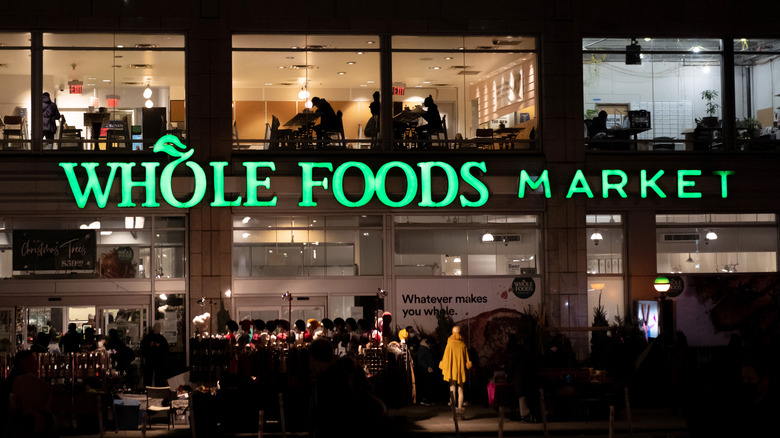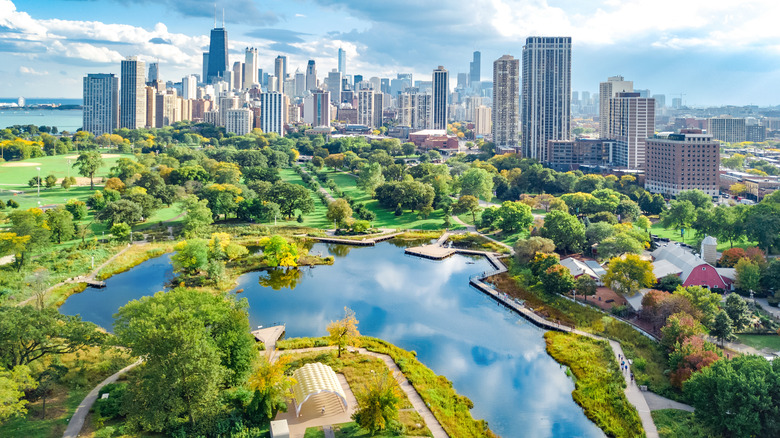The U.S. City With More Whole Foods Locations Than Any Other
USA Today has reported that there are over 38,000 traditional supermarkets in the United States. To be a part of this relatively small club of food retailers, the Food Industry Association explains that a grocery store has to fit into the definition, which states that, in order to be a traditional supermarket, a store must have "a full line of groceries, meat, and produce with at least $2 million in annual sales." Fitting the bill is the upscale Whole Foods Market, which is part of the Amazon family and, per USA Today, comes in fifth in popularity among shoppers when compared to its peers.
Whole Foods has come a long way since it first opened its doors in Austin, Texas in 1980. A distinguishing characteristic of this grocery store chain includes its designation as the first-ever U.S. certified organic national retailer. This label simply means the store is subjected to a strenuous audit each year to ensure their products meet the criteria necessary to secure this coveted monicker, but still Whole Foods gets to say it was the first (via Eat This! Not That!). However, rather surprisingly, its original home state of Texas doesn't get to boast that they have the most Whole Food stores in the nation, nor does it hold this title in any of the cities that populate the Lone Star State. In fact, it might surprise you to learn which U.S. city gets bragging rights as home of the most Whole Food stores.
The Windy City has the most Whole Foods Markets
According to Scrape Hero, the city that can say it has the most Whole Foods Markets is none other than Chicago, Illinois. The Windy City has 12 of these super markets. But that doesn't mean Illinois gets the swagger of saying it has the most Whole Foods in the U.S. In fact, the state with the greatest number of Whole Foods is actually California where there are 94 locations, followed by Texas with 36, and then Massachusetts with 33 locations.
But, while Whole Foods is considered an expensive grocery store by some shoppers, Grocery Dive revealed that the company is still trying to gain a foothold in impoverished neighborhoods, including that of Englewood, a neighborhood in Chicago, providing necessary supply in what are considered food deserts. According to the niche publication, Walter Robb, Whole Food's former co-CEO and chairman of the Whole Cities Foundation, told the Chicago Tribune, "Englewood is the biggest challenge we've ever undertaken as a company trying to serve a community."

